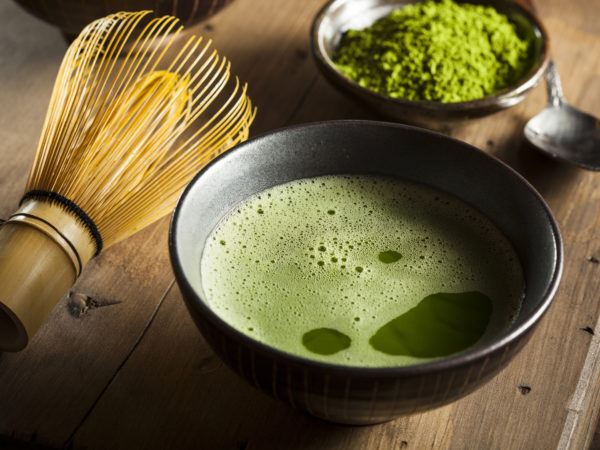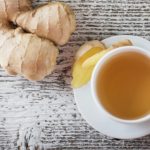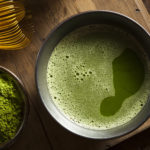Matcha Tea Bags?
I know you’re a great fan of matcha tea. I’m wondering what you think of matcha tea bags, which I’ve seen advertised.
Andrew Weil, M.D. | August 2, 2018

Matcha – literally, “powdered tea” – is a special type of green tea: a delicate, jewel-green powder that is whisked with hot water in a bowl to make a frothy beverage. Preparation of matcha is the focus of the Japanese tea ceremony and has a long association with Zen. Matcha is the only form of tea in which the whole leaf is consumed, and because it is made from top-quality leaves that are treated with great care, it delivers more of the healthful elements of green tea than other forms. A unique, beautiful and richly flavorful drink, matcha gives most people a feeling of well-being and calm alertness. In addition, the simple ritual of preparing it is both enjoyable and meditative.
I’m aware of the recent appearance of alleged matcha products in tea bags on the North American market. Genuine matcha is packed only in sealed packets or tins. The many brands of bagged “matcha” now available are bogus. They are mostly cut leaves of ordinary green tea (sencha) or the shade-grown green tea (tencha) that can be ground into powder. Some of these products have a bit of real matcha added to the cut leaves.
Sadly, many people who think they have tried matcha have only had the fake stuff. Some think they are getting a bargain, because the tea bag products cost much less than the pure powder. Real matcha is expensive, because a lot of work goes into growing and processing it.
When you drink matcha, you are consuming the entire tea leaf, not just a water extraction. And quality matcha gives you more nutrients and beneficial compounds than ordinary tea. In addition to providing trace minerals and vitamins (A, B-complex, C, E, and K), matcha contains l-theanine, a unique compound with relaxant effects that modifies the stimulation of caffeine.
Matcha is also rich in catechin polyphenols – compounds with high antioxidant activity that offer protection against many kinds of cancer, help prevent cardiovascular disease and slow the aging process. They also reduce harmful cholesterol in the blood, stabilize blood sugar levels, help reduce high blood pressure and enhance the resistance of the body to many toxins. EGCG (epigallocatechin gallate) the most important polyphenol in matcha is the subject of many medical studies. Matcha also has a significant amount of dietary fiber and practically no calories.
I advise buying matcha from an importer whose stock turns over steadily, so you get a fresh product. If your experience of “matcha” is limited to the stuff in tea bags, you have yet to discover why this special form of green tea is held in such high regard. Seek out the real thing!
You can learn more about matcha and see a video about how to make it here.
Andrew Weil, M.D.














